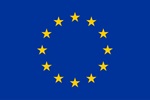What are the new digital solutions for the building stock?
17 Jul 2023
Enhancing the energy performance of buildings and developing a European Common Digital Building Logbook

In the path towards decarbonization, digitalizing the energy sector stands as one of the EU's key political priorities. Digital technologies have the potential to make energy systems more interconnected, intelligent, efficient, reliable, and sustainable, impacting the entire energy value chain, including generation, transport, distribution, supply, and consumption.
This significance is particularly evident in the EU building sector, as the European building stock currently accounts for 40% of energy consumption and 36% of greenhouse gas emissions in the EU, making buildings one of the largest energy consumers in Europe.
Recognizing the central role of this issue, the EU has progressively established a legislative framework to enhance the energy performance of buildings by introducing increasingly stringent measures. The EU's 2030 Climate Target Plan aims to achieve a minimum of 60% emission reductions in the building sector by 2030 compared to 2015, ultimately leading to climate neutrality by 2050.
Another key priority is the development of a European Common Digital Building Logbook as an information management tool. Despite some recent important progress, its implementation has not yet been realized.
Our commitment
We are actively engaged in developing energy efficiency solutions in the building sector for commercial, tertiary, and residential facilities. Our range of services includes basic energy assessments, as well as the preliminary and final design of specific renewable systems and energy-saving interventions.
This year, we have initiated several new R&D projects with the aim of increasing the energy efficiency of buildings and optimizing their management. These projects include:
- The SMARTEESTORY project, which we are coordinating, focuses on developing an integrated building automation and control system to monitor and optimize the energy performance of historical non-residential buildings (Grant Agreement 101103956).
- The RENplusHOMES project, also under our coordination, aims to establish a universal methodology for creating positive energy homes and residential districts. The project's objective is to facilitate the transition to climate-neutral and energy-positive residential buildings (Grant Agreement 101103450).
- The BUILDON project is dedicated to developing and demonstrating a Smart Transformer Toolbox that enables improved energy performance across a wide range of building typologies and smart readiness (Grant Agreement 101104141).
- BUILDCHAIN extends the functionality of a Digital Building LogBook (DBL) utilized by a municipality to manage and administer its extensive portfolio of buildings (Grant Agreement 101092052).
By participating in these initiatives, we are committed to driving positive change and contributing to the EU's efforts in achieving sustainable and energy-efficient buildings.
